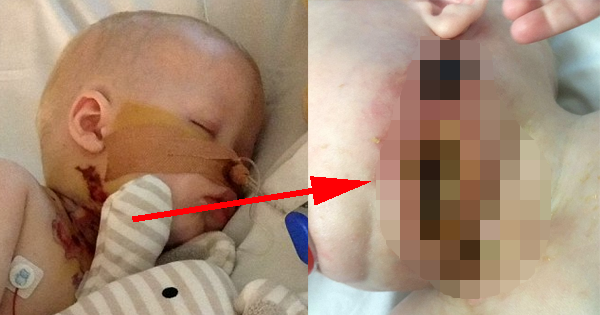In early February, 13-month-old Charlie Cave began to develop early symptoms of chicken pox on his neck. His parents didn’t think too much of it, until Charlie began to scratch at his neck, unknowingly starting a second infection that traveled into his blood stream.
What had begun as a common, childhood illness quickly transformed into the beginning stages of necrotizing fasciitis, a bacterial skin infection that spreads through the body, destroying soft tissue in its wake.
Charlie’s parents immediately took him into the hospital for treatment, where his doctors put him in an induced coma and kept him intensive care for two weeks. The doctors had to perform emergency surgery to remove some of the blackened, swollen tissue on his chin and cover his body in ice packs in hopes of reducing his high temperature.

During Charlie’s treatment, complications arose. Charlie had not only developed a serious infection, but he also had Strep A. This disease is normally treated with antibiotics – but Charlie’s kidney failed and his lung collapsed, causing the doctors to hurriedly find other treatment methods.
Charlie’s father, Alan, remembered, “It was touch and go for a number of times. It was pretty grim to see and [he and his wife] felt so helpless with Charlie just lying there. He didn’t look like our little boy anymore.”
Thankfully, Charlie’s doctors were able to get his infections under control and set him on the road to recovery.
The now 19-month-old boy will always now always have deep wounds on his neck from the infection and likely have to return to the hospital for skin grafts for scar care in the future.
Cave is thankful to still have his son with him, but is now warning other parents against waiting too long before seeking medical help. “A parent knows their child and on that one morning, we knew something was wrong,” Cave recalled. “I just want to say to other parents to not take anything for granted and if you have a concern, to act on it.
“Make sure you get your child checked out immediately because it is so time sensitive.”





